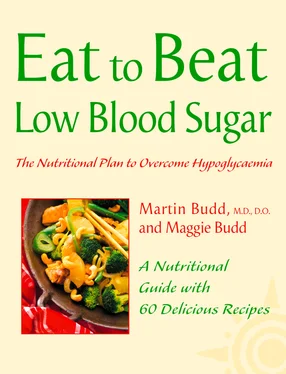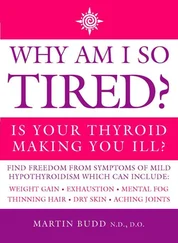This storage facility was essential for human survival several thousand years ago, for the early hunter-gatherers were very similar to the present day big cat carnivores in Africa and India. Their eating habits consisted of large meals perhaps every three to four days. The ability to store food was therefore a vital survival strategy. Unfortunately 21st-century men and women follow a largely sedentary lifestyle yet they often eat carbohydrate-rich meals and snacks three to six times daily. Our metabolism can only convert a small amount of excessive sugar to glycogen, which is stored in the liver and muscle cells. The remainder is stored as fat. Our food is our fuel and if the fuel is not required it is stored and excess weight is the result.
However, a sugar-laden diet does not only lead to the storage of fat. Because the insulin response is constantly being overworked, it can become less efficient as the cells become less sensitive and resistant to the effect of the insulin.
INSULIN RESISTANCE
This gradual loss of sensitivity to the blood insulin results in an increase in the level of insulin as the pancreas secretes more and more in an attempt to normalize the blood sugar balance. The end result is an on-going high level of blood insulin (hyperinsulinaemia). This excess insulin promotes more fat storage at the expense of available energy. High-sugar and high-carbohydrate eating can eventually lead to obesity, high blood fats, high blood pressure and fatigue (this group of disorders is known as Syndrome X, or metabolic syndrome). Such inappropriately high levels of blood insulin can cause chronic irritable bowel syndrome, adrenal exhaustion and disturbances to the female hormonal balance (as in Polycystic Ovary Syndrome).
Although the brain and nervous system rely on blood sugar as the chief nutrient, excessively high levels of blood sugar can cause damage to nerve cells.
The temporary fall in the blood sugar caused by the insulin response to food triggers adrenal compensation, where adrenaline is released to counter the effect of the low blood sugar. This yo-yoing of the blood sugar levels can lead to a chronic imbalance in the blood sugar control (dysglycaemia), causing adrenal deficiency and a reduced thyroid hormone output. The thyroid gland reflects our metabolic rate and mild hypothyroidism can result from adrenal exhaustion.
The role of the adrenal hormone adrenaline in the blood sugar narrative highlights a design fault in our body chemistry. This vital hormone has two major functions. These are stress-handling (the so-called fight or flight response) and raising our blood sugar when the level falls too low.
As any athlete knows, adrenaline increases the metabolic rate, the heart rate, the blood flow to muscles and the oxygen intake. In a primitive society this would prepare us to either run or attack. However, for those of us who suffer from low blood sugar (which causes our brain and nervous system efficiency to be compromised), the adrenaline response that occurs is identical to our reaction to any type of stress. This explains why so many sufferers of long-term low blood sugar experience episodes of aggression and mood changes – examples being women with pre-menstrual syndrome and diabetics or non-diabetics who ‘hypo’. Our metabolism cannot identify the reason for the adrenal surge, hence the stress response that occurs with low blood sugar.
The modern high carbohydrate/sugar diet, coupled with our sedentary lifestyle, has lead to an increase in many low blood sugar symptoms, including obesity, fatigue and poor stress handling. The subsequent adrenal compensation and exhaustion can result in mild hypothyroidism, high blood pressure and subsequently Syndrome X. Anxiety, depression, elevated blood fats and metabolic depression can be the consequence.
In the next chapter we look at the many symptoms that can result from low blood sugar.
CHAPTER 3 The symptoms of low blood sugar
One of the main problems in accurately diagnosing low blood sugar is that many of the symptoms of the condition can have other causes.
General symptoms and problems
To discuss the diversity of symptoms caused by low blood sugar would take up most of this book. However, the list below is a representative selection of the most common symptoms that can be caused in part or wholly by low blood sugar.
| Fatigue |
Anxiety |
Depression |
| Irritability |
Forgetfulness |
Poor concentration |
| Indigestion |
Breathlessness |
Panic feelings |
| Headaches |
Migraine |
Asthma |
| Overweight |
Food cravings |
Excessive smoking |
| Alcoholism |
Vertigo |
Sweating |
| Pre-menstrual tension |
Muscular stiffness |
Phobias |
| Numbness |
Blurred vision |
Cold extremities |
| Joint pain |
Fainting and blackouts |
Convulsions |
| Nightmares |
Lack of sex drive |
Allergies |
| Angina |
Suicidal tendencies |
Irritable bowel symptoms |
| Epilepsy |
Stomach cramps |
Stomach ulcers |
| Hyperactivity |
Neuralgia |
Agoraphobia |
| Narcolepsy |
Tinnitus |
|
I am sure there will be many eyebrows raised at the great variety and number of symptoms I have listed and, at first sight, it is difficult to imagine that there is a common theme to all these conditions.
Interestingly though, many of the symptoms of low blood sugar are classed by doctors as ‘stress disorders’ and I hope to show, by describing the effect of sugar on the nervous system, that many of these symptoms are in fact due to nutritional imbalances and not ‘personality failings’. You may see several of your own symptoms on the list; but simply to scan this list, recognize your symptoms and blame low blood sugar is not the answer. As previously stated, many of these symptoms may have other causes, not least of which could be stress.
Self-diagnosis is therefore not advisable; a naturopath or sympathetic doctor should be able to offer more objective diagnostic methods. These can include, in addition to detailed case-history taking, the six-hour glucose tolerance test, the measurement of adrenal and thyroid hormones and a blood insulin test (these will be discussed in due course).
At some time in their lives most people experience one or more of the symptoms listed above. They are usually caused by transient low blood sugar – a temporary or passing fall in the blood sugar level. This is rapidly rectified by the body’s own sugar regulation mechanism. Once a balance is achieved, the symptoms usually disappear. If, however, there is a chronic imbalance in our sugar regulation, the symptoms may well improve or change, but they will always return if the actual imbalance is not corrected.
Now let us look more closely at the way in which a drop in the blood sugar directly affects the various organs and systems of the body, giving rise to the symptoms outlined. In this way you will begin to understand why the blood sugar level is so important to the normal running of the body. The effects of low blood sugar can be classified as follows:
The main nutrient needed by the nervous system is glucose. There is no really adequate substitute and, although other substances are involved, they cannot replace glucose. Unfortunately, it is not fully understood just how glucose acts on the nervous system, but it has been noted that when a healthy patient is injected with insulin (the opposite of glucose), profound and sudden changes in the efficiency of the nervous system occur within minutes. This is completely reversed by an injection of glucose. This tends to confirm that the nervous system requires a continuous supply of glucose in order to function efficiently.
Читать дальше












